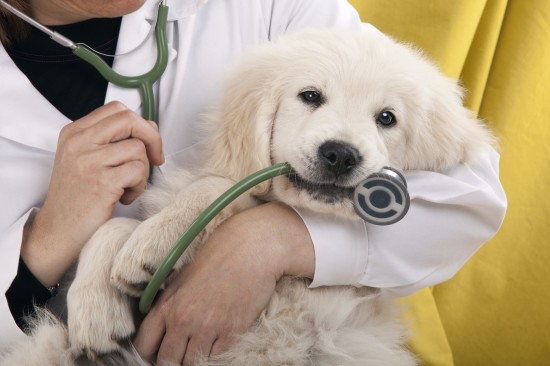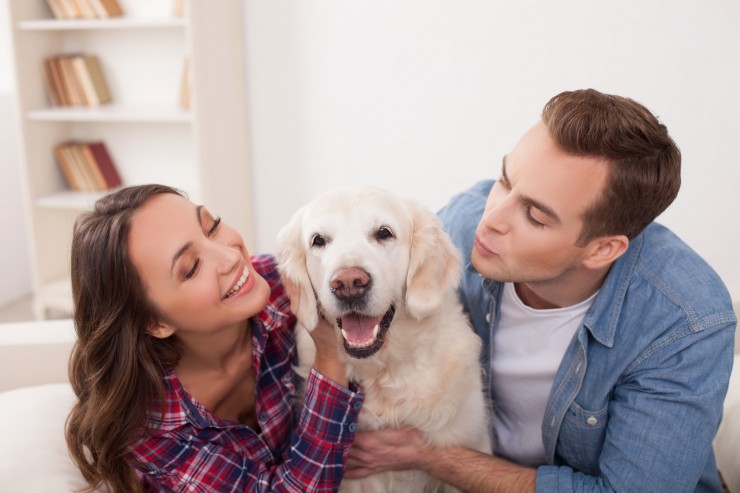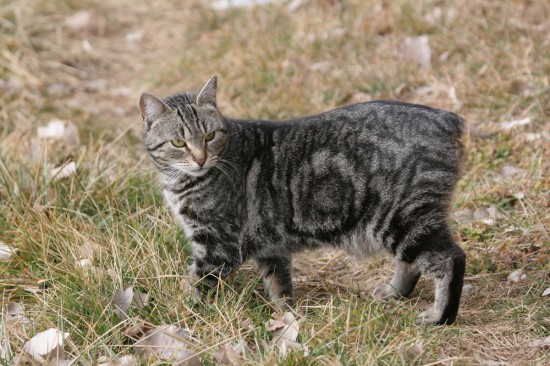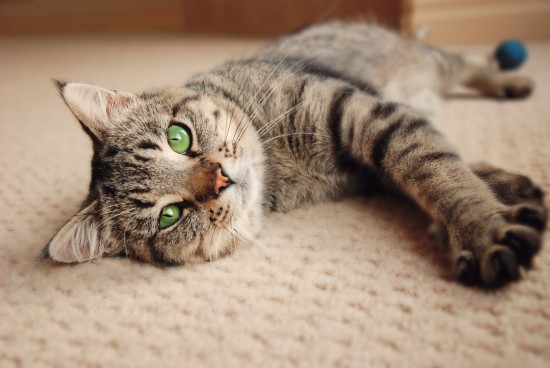

Your veterinary practice should be your first port of call if you have any questions or concerns about your pet’s welfare or health, and often, you will be able to get advice over the phone as to whether or not your pet needs to take a trip to the surgery. Many minor conditions that can affect cats and dogs will fix themselves within a couple of days, such as a case of the sniffles or an upset stomach. However, it can be hard to know when your pet actually needs to be seen and receive a professional diagnosis, and when it is wiser to just monitor the issue and see how things develop. Read on for our advice on when your cat or dog needs to visit the vet, even if you are not sure about the situation.
If your pet has been hit by a car, even if it was only glancing blow and your pet appears to be fine, you should always take them in for a check up, as there may be unidentified internal injuries. Similarly if your pet falls from any height, hits their head, becomes unconscious for any length of time or appears to be injured or have problems breathing, your vet should be your first port of call. If your pet has just grazed themselves or taken a light knock and appears unharmed, you can usually monitor the situation at home.
Familiarise yourself with the various products and foodstuffs that can be toxic to dogs and cats, and ensure you do what you can to keep your pet away from them. If you suspect that your pet has eaten even a small amount of something that is known to be toxic, take them into your vet straight away, even if they appear to be fine.
If your cat or dog undergoes any kind of fitting or seizure for the first time, even if it is short in duration, this will require further investigation and your pet should be taken along to the vet forthwith.
If your pet has a minor cold or a case of the sniffles, this will often go away on its own. However if your pet is having problems breathing, they will require immediate veterinary attention. Noisy breathing, breathing too fast, laboured breathing, struggling to catch their breath or breathing that is shallow and uncomfortable all require a vet visit.
If your cat or dog has swallowed something that they shouldn’t have done, this might work its way out of your pet’s system naturally, but then again it might not! Small solid objects are more likely to be passed naturally than things like dental floss or string, which can all cause problems. Anything sharp or pointy again carries an elevated risk. If your pet has ingested a foreign body, call your vet for advice and see what they recommend.
A short, minor bout of sickness or diarrhoea that lasts for less than a day can generally be managed at home, but if it goes on for any longer than this, contact your vet. Your pet should still be able to consume water while they are ill; if they cannot drink or cannot keep water down, again, you will need to speak to the vet. If your pet appears to be passing blood in the stools or vomit, contact the vet immediately.
If your pet has been involved in high impact exercise or has strained themselves in some way, this might manifest as a minor limp or unsoundness. When the problem is minor, it should relieve itself within a day or two, but if your dog is still limping after 48 hours, appears to have injured a limb or is displaying pronounced signs of pain, it’s time to go to the vet.
No, not the coat! You can tell if your dog is pale by looking at the mucous membranes of the eyes and the gums, and if they are not a normal healthy pink colour, your dog may be anaemic or sick with something. If your notice a yellowish tinge to either your pet’s eyes or skin, this is indicative of potentially serious liver problems, and requires urgent treatment.
If your cat or dog develops bad breath over time, this is usually indicative of dental problems or an inappropriate dental care regime, which will require veterinary assistance to address but is not an emergency situation. However, if your cat or dog very suddenly develops bad breath over the course of a few days and it is not related to something they have just eaten, this may indicate a developing health issue that will require further investigation and possibly treatment, so call the vet and schedule an appointment.
If your pet appears to be suddenly drinking too much or not enough water, this may be due to a simple anomaly in the weather, what they have eaten or what they have been doing. However, if your pet will not or cannot drink for more than 24 hours, or is drinking a consistently high amount of water, call the vet.
If your pet is off their food, they might simply have a minor stomach discomfort, upset tummy or have eaten something elsewhere! However, if your pet does not eat or is not as enthusiastic as normal about their food for more than a day (and you haven’t made any recent changes to their diet) this requires further investigation.
This list is by no means exhaustive; remember that you can always call your veterinary practice and speak to a vet or veterinary nurse for advice or reassurance if you suspect that something is amiss. If anything seems out of the ordinary with your cat or dog, don’t be afraid to ask for help; your pets cannot ask for themselves!
 A Look At Chicken Coop Designs And Plans
A Look At Chicken Coop Designs And Plans
 7 Things You Should Agree Upon With Your Partner Before Buying A Dog
7 Things You Should Agree Upon With Your Partner Before Buying A Dog
 The Manx Cat - The Genetics Of The Tailless Cat Breed
The Manx Cat - The Genetics Of The Tailless Cat Breed
 Fibre, Grains And Fillers - What Does Your Dog Need?
Fibre, Grains And Fillers - What Does Your Dog Need?
 Tips For Introducing A New Rescue Cat To The Household
Tips For Introducing A New Rescue Cat To The Household
 How to find BC German Shepherds for sale online?
How to find BC German Shepherds for sale online?
Copyright © 2005-2016 Pet Information All Rights Reserved
Contact us: www162date@outlook.com